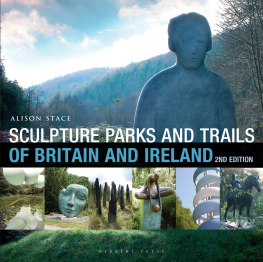THE
Cathedral Towns
AND INTERVENING PLACES OF
England , Ireland ,
AND
Scotland :
A DESCRIPTION OF CITIES, CATHEDRALS, LAKES, MOUNTAINS, RUINS, AND WATERING-PLACES.
BY
THOMAS W. SILLOWAY
AND
LEE L. POWERS.
"A dwarf standing on the shoulders of a giant may see farther than the giant himself." Didimus Stella.
BOSTON:
CUPPLES AND HURD.
94 Boylston Street.
1887.
Copyright, 1883,
By A. Williams and Company .
THIRD EDITION.
University Press:
John Wilson and Son, Cambridge.
TO
LUTHER GARDNER ROBBINS,
THE GOOD COMPANION AND FRIEND OF ONE OF THE AUTHORS
FOR MORE THAN A QUARTER OF A CENTURY,
AND OF THE OTHER FOR SOME YEARS,
This Volume
IS AFFECTIONATELY INSCRIBED AS A SMALL TOKEN
OF REGARD AND ESTEEM.
[Pg iv]
[Pg v]
INTRODUCTORY.
The Authors, having travelled somewhat leisurely over important parts of Ireland and Scotland, and in a yet more deliberate and critical manner over the principal parts of England,observing not only salient points in the life of each country, but at the same time passing in review their history and work,and believing that a synopsis of what their New England eyes, ears, and minds saw, heard, and discovered, would be acceptable to the public, one of them prepared a series of articles which were published in one of the weekly papers of Boston. The interest awakened, and a belief that these reminiscences should be put into a more permanent form, have inclined the authors to amend the articles as the case seemed to demand, and they are thus presented in this volume.
When the original papers were prepared, a departure from the usual custom of writers on travel was made. Instead of simply recording personal observations, the labor was extended by the incorporation of historic and biographic facts, the authors hoping that, while their work would be valuable and interesting as a compend to those familiar with the facts, it would also be entertaining and instructive to that large class, in all communities, who are without the means of obtaining such information. Care was therefore exercised to obtain data verified by the testimony of various authors.
The articles having been published in narrative style, it has been thought well to present them again in that form; and the authors wish to say by way of apology, if one be needed, that the opinions and criticisms expressed are such as impressed their own minds, and are not reflections of the minds of others. With this explanation, and craving the indulgence and patience of the reader, they send forth their volume.
CHAPTER I.
NEW YORK TO QUEENSTOWNCORK.
On Saturday the 12th day of April, 1878, at half-past 3 p. m. , the good Inman steamer City of Richmond, with us on board, loosed her cables, and the floating palace moved out into North River majestically,as only such vessels can move,passed the forts, and sailed on, till at dusk, yet before dark, the Highlands of Neversinka misnomer to us thenretired from view, and, Byron-like, we felt and said,
"My native land, good-night."
Suppered, and enjoyed the look of that waste of sky and waters till ten o'clock, and then consigned ourselves to the embrace of
"Tired nature's sweet restorer, balmy sleep."
The morrow was Sunday. We were up betimes, and on deck for new views, fresh air, and to see how things compared with those of last night. All was well,comparatively smooth sea, and good breeze. We had sailed 224 miles, and so were that much from home. Breakfasted, and on deck again,this time to see nearly all our cabin passengers, about one hundred complete. They appeared well, and we thought our lot had been cast in a pleasant place; and so it proved. There were conspicuous the essentials of comfort for the voyage,among them inclined-back, cane-finished lounging-chairs, and good blanket robes, brought by providential people who had travelled before, or who had friends who had journeyed and in whose advice they had confidence. No matter if it be July or August, it is a good friend who effectually advises one to carry a great coat, shawl, or blanket robe.
The sun shone bright, and the inhabitants of the City of Richmond were happy. At 10 a. m. came the roll-call of sailors and table-waiters, arranged in squads at special points. An officer and the captain passed in front, the name of each was distinctly called, the old, old response, Here, passed along the line, and the work was done. Of course a large part of the passengers were near by, inspecting, and they were presuming enough to think all was going on right, and the work well done.
Next came an officer giving information that divine service was to be held in the cabin at 11 a. m. , and inviting singers to be at a certain location. One of our party, having before tried the ship's piano, was installed as pianist. At the hour appointed, nearly all on board, including the sailors, had assembled, and it seemed very like a church meeting. The pulpit was a desk placed on a common table, covered with a cloth; a Bible and prayer-book were on it, and our captain officiated,a man of fine physique, apparently about sixty years old, and, but for the absence of clerical robes, very bishop-like in appearance. He went finely through the service of the Church of England, employing about an hour, and concluded by saying: "I am now to preach my usual sermon, which is to take up a collection for the widows and orphans of sailors." A good charity,and a befitting response was made.
At one o'clock, dinner; next, various methods of using the time, the principal of which was reading or lounging about decks.
Soon came a change in conditions. Wind breezed up and we had more than a fifteen-mile power; and so sails were in orderour first sight of operations of the kind. Next came white-capped waves; and at 5 p. m. had come those indescribably hateful movements of the ship, that many a one has felt before,down first at bow, and next up at stern, and











